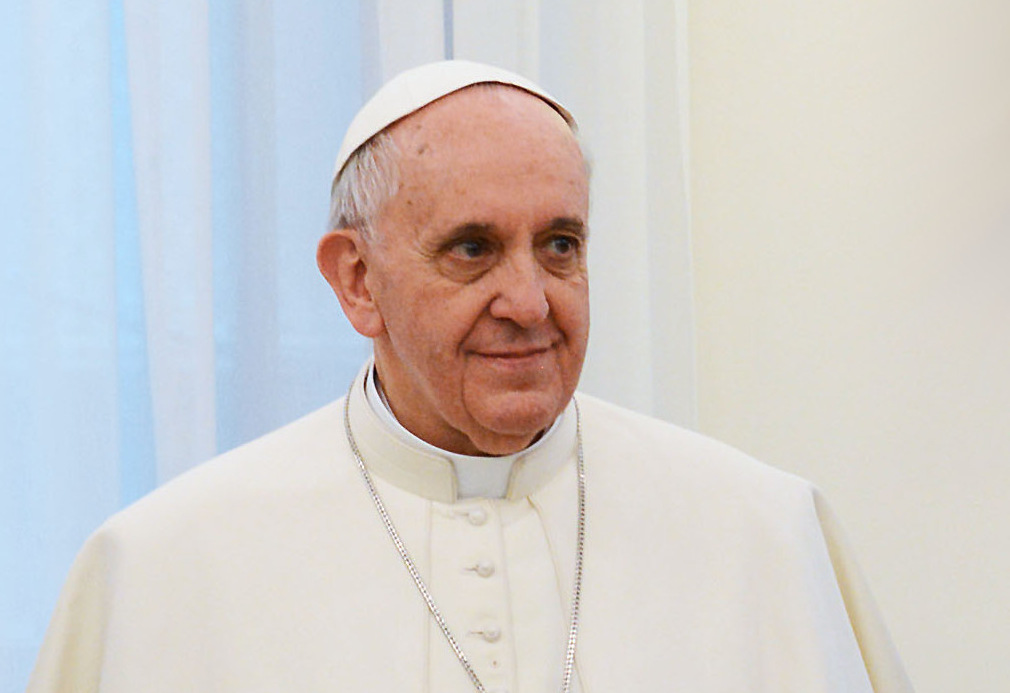Dhaka, Bangladesh (ViaNews) – Pope Francis concluded his visit to Asia on Saturday as he headed to the Vatican with a flight from Biman, the flagship Bangladeshi airline. Though the desperate plight of the Rohingya refugees has dominated Pope’s landmark visits to both Bangladesh and Myanmar, the visits carry significance beyond the Rohingya angle.
During his Bangladesh visit (November 30 – December 2), Pope had an emotional meeting with a group of Rohingya refugees – twelve men, two women, and two young girls – at the Dhaka archbishop’s residence. Each one of the 16 refugees, who came from the Rohingya refugee camps in Cox’s Bazar, met the Pope one by one.
The refugee camps in Bangladeshi districts bordering Myanmar, especially the district of Cox’s Bazar, are overflowing with Rohingya refugees who have been fleeing – what the United Nations says – an ethnic cleansing by Myanmar’s military. They have fallen victim to rape, arson, and murder that compelled them to make the dangerous journey through jungles and by river and sea to Bangladesh.
Hearing the aforesaid 16 Rohingyas at the Dhaka archbishop’s residence, Pope Francis asked for forgiveness from the refugees for all the pain and persecution they have endured. He demanded the rights of the Rohingyas be recognized and pronounced the word “Rohingya” that he had so attentively avoided only days earlier during his visit to Myanmar (November 27 – 30).
During his four day visit to Myanmar prior to the Bangladesh visit, Pope Francis walked a diplomatic tightrope and avoided any direct reference to the “Rohingya” in public, though he had appealed to the Buddhist leaders to overcome prejudice and hatred.
Human rights organizations, the Rohingyas and a section of the international community had criticised at Francis’ public silence during his Myanmar visit, given he had previously condemned the persecution of the Rohingyas, calling them “our Rohingya brothers and sisters” earlier this year at the Vatican.
The Vatican leadership defended the stance citing the reason that it was diplomatically necessary not to enrage the Myanmar’s Buddhist community and military leadership.
The word “Rohingya” is politically sensitive in Buddhist majority Myanmar due to the widespread perception of the country’s Buddhist community that the Rohingyas are ethnic ‘Bengali’ and that they migrated from neighbouring Bangladesh.
Pope, later himself defended his position saying that if he had used the word “Rohingya” during an official speech, he would have slammed the door (to peace). “For me, the most important thing is that the message gets through,” said the Pope.
It was also learned that the archbishop of Yangon had appealed Pope Francis not to create possible problems for them by using the word “Rohingya” during his Myanmar visit. Indeed, any reference to the “Rohingya” in Myanmar could have inflamed tensions and endangered the lives of the Christians in the country. Even after coming to Bangladesh, Francis didn’t use the word at the first day of his Bangladesh visit.
However, for the first time on his visit to these two neighbouring Asian countries, Pope Francis referred to the Rohingya people by name on the second day of his stay in Bangladesh. In a gathering of leaders of different communities during an interfaith meeting at Dhaka’s Kakrail Catholic Chruch, Pope said, “The presence of God today is also called Rohingya.”
Significance beyond the Rohingya angle
During Pope’s Bangladesh visit, the government made Pope’s tour a grand one with the majestic treatments arranged for the leader of the world’s 1.2 billion Catholics. Bangladesh rolled out the red carpet on Pope’s arrival in Dhaka, greeted him with a 21-gun salute. A guard of honour from the Bangladesh Army, Navy and Air Force was given to the Pope, who took the state salute from a makeshift stage.
A giant open-air mass at Dhaka’s Suhrawardy Udyan Park was arranged during Pope’s visit, where nearly 100,000 people took part.
Such exposure to the Pope was given in this Muslim majority country with a purpose to show the world that Bangladesh is a moderate country where religious harmony prevails in every sphere of life. The current Bangladeshi government wants to get rid of the image of a country which has security problems and Pope’s visit would add a lot to this end.
As for the Vatican leadership that has the religious authority over the global Catholic community, it needs to show the audience of a 1.2 billion global Catholic population – who depends on the leadership (especially the Pope) for spirituality, morality, and morale – that its influence is a growing phenomenon worldwide.
To this end, the Pope, who is also a political leader with the courtesy of being the head of the Vatican state, not only made the estimated 350,000 Catholics in Bangladesh happy with his visit, prayers and blessings, but also addressed the sufferings of the Rohingyas, an issue that demands recognition from a person of his stature.
Pope’s open-air masses in both Bangladesh and Myanmar were attended spontaneously by the Catholic communities in these countries, reflecting Vatican leadership’s reach even to the Asian countries having a tiny Catholic population. In Bangladesh, Pope attended a giant open-air mass at Dhaka’s Suhrawardy Udyan Park of nearly 100,000 people, many of whom thought that the moments of watching Pope and hearing his speech first hand were the best moments of their lives.
Major Bangladeshi opposition political force did not meet the Pope
Bangladesh Nationalist Party (BNP), one of the two major political parties in Bangladesh, made no approach to meet the Pope during his three-day visit to Bangladesh. This is the first time that BNP has not made any overtures to meet any foreign head of state during his visit to the country.
One reason behind this could be the fact that the BNP may have perceived the Pope’s visit to be less political in nature, and more spiritual and humanitarian. The other reason could be that Pope Francis does not have any roles in Bangladeshi elections or politics even as a state leader and, thus, any meeting with him would not have served any of BNP’s interest.
An analogy could be drawn here too with the previous visit made by the grand imams of the mosques of Mecca and Medina to Bangladesh. During their visit too, BNP did not make any attempt to meet them.
There’s more. Though not an Islamist party, BNP is alleged to have tacitly used the religion card in politics many times in the past. BNP’s vote bank is known to be dominated by voters and potential voter who are sensitive with regard to the religion. This could be a reason too for not making any overtures to meet the Pope. However, it’s just a speculation and nothing is known officially from BNP’s end.







